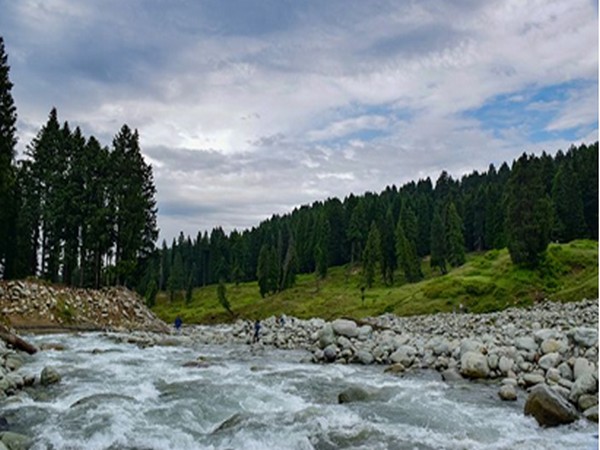There is a knowledge vacuum regarding the connected histories of Kashmir since the 2000 years of its formative history and this, coupled with systematic academic neglect, has given rise to a host of misconceptions and misrepresentations due to the rush towards separatist politics. There has been a deliberate silence on Kashmir’s historical identity to suit the separatist political agendas across the globe. This systematic erasure of Kashmir’s history from living local memory is the root of the disinformation and conflict in the valley and has led to the irreparable loss of life, generational trauma, and grief.
According to historian and Associate Professor Dr Shonaleeka Kaul’s seminal work ‘The Making of Early Kashmir: Landscape and identity in the Rajtarangini’, Kashmir emerged in a network of shaped interactions with the Indic subcontinent or supra region, not in isolation or insularity. She maps out detailed connections and centrality of Kashmir to the imagination, participation and subscription to all pan-Indian beliefs and practices before the closed, exclusionist character of separatist politics denied it in service of conflict, resulting in the disintegrating of both Muslim and Pandit communities.
This deracination (uprooting of one from their natural geographical, social, and cultural environment) was done by propping up a fundamentalist narrative and agenda to develop a false narrative that Kashmir was hermetically sealed off from India. In a five-part series in The New Indian Express, Dr Kaul goes on to systematically prove that Kashmir was open, cosmopolitan, and Indic in her genesis and epitomised the Indic for two millennia. She uses not only historical geography, archaeology, linguistics, and belief systems to prove her thesis but also testimonies of ancient and medieval observers outside of Kashmir, the evolution of the Kashmiri script, matrimonial alliances with various kingdoms of India, art, philosophy, and migration patterns across the two pan-Indic routes of trade and communication, namely the Uttarapath from Peshawar to Bengal and the Dakshinapath from Bihar to peninsular and coastal India.
The identity of a community or region forms organically over a long duration with a network of shaped interactions with other regions or a supra region as mentioned above. Hence Kashmir could not have developed a unique and insular one, considering how it was part of the pan-Indian political formations and a part of trans-regional Indic kingdoms. If we are to redress this knowledge vacuum, the fallacies regarding Kashmir’s social and cultural interconnectedness must be distanced from the exclusionist and separatist status that has been pushed forward to service conflict by vested interests, not just domestically but internationally too. Yes, Kashmir does display a distinct regional self-awareness from the accounts that have come down to us, emphasising Kashmir’s overarching adherence to all Indian beliefs and practices; proving yet again that there was no conflict between the local and pan-Indic affiliations and Kashmir was always crucial to the subcontinent’s affairs.
If anyone is looking for a path to peace and reconciliation, it can only lie in reclaiming Kashmir’s plural, open and cosmopolitan histories, and the acceptance that its genesis was Indic in nature. Then only can people heal through reversing the epistemic violence done to them by taking pride in their history and cultural, social, and political connectedness to the subcontinent? Epistemic violence is the consequence of epistemic injustice (the injustice of dismissing the knowledge of Kashmir’s connected past with the subcontinent and diminishing the validation of evidence proving these shared histories), in Kashmir’s case, the global anti-India machinery and the ‘Atlantic Gang’ has constantly pushed this epistemic injustice with well-funded disinformation and conflict toolkits.
The marginalisation of the voices from the minority Pandit community as well as the victims of terrorists from the majority Muslim community is proof of this epistemic violence. Foreign powers, and their allies in keeping a region down geopolitically, through means of conflict, and anarchic narratives which disrupt the social fabric of a subcontinent that has developed cohesion over centuries, despite repeated invasions, plunder, and eventual partitioning of two separate countries, cannot be allowed to manipulate the internal workings of a population that has chosen violence to redress their traditional political grievances by ethnically cleansing a community. There is no ethical, moral, or political basis for the regressive aspirations of a separate homeland only on the basis of religion.

